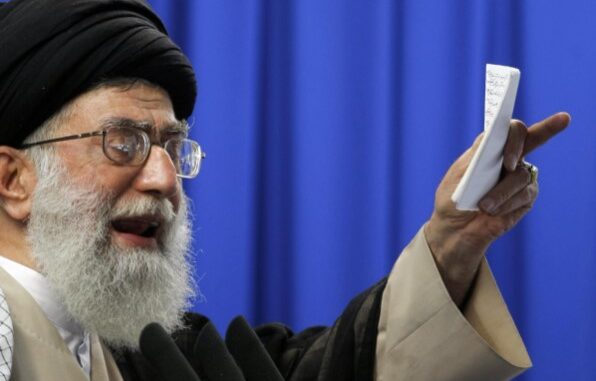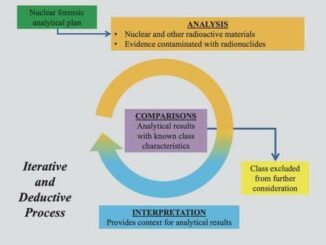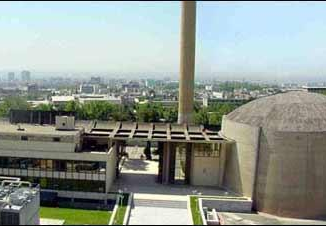
Energy News Beat Publishers Note (ENB): Iran has never stopped the enrichment of nuclear fuel since the 2015 Nuclear Agreement. Now they are emboldened to not negotiate. Iran’s new contracts with countries like China will guarantee enough oil exports to support the countries cash flow requirements. With cash comes bargaining power.
Diplomats resumed talks in Vienna to revive the stricken nuclear agreement with Iran, picking up the pieces left by a weekend attack on the Islamic Republic’s primary nuclear-fuel facility and its retaliatory vow to begin enriching uranium close to weapons grade.
Envoys from Iran and six world powers started their third meeting in 10 days with the Persian Gulf once again convulsed by the crisis. They’re trying to coordinate a U.S. return to the 2015 nuclear deal and Iranian compliance with its enrichment commitments. The immediate challenge will be to defuse tensions.
Reflecting the deteriorating atmosphere, Iran’s lead negotiator, Deputy Foreign Minister Abbas Araghchi, warned moments before talks restarted that Tehran could suspend its participation if discussions didn’t “go in the right direction.” Iran’s delegation also includes officials from the central bank and oil ministry.
The aim of getting the U.S. back to the accord, which offered sanctions relief in return for a cap on Iran’s nuclear activity, was made more difficult this week.
Saboteurs interrupted production at Iran’s Natanz fuel enrichment plant, prompting Tehran to announce it would begin producing highly enriched uranium. Iranian Foreign Minister Mohammad Javad Zarif warned that time was running out over the issues that have repeatedly threatened to tip Iran into open conflict with its neighbors.
Most recently, Tehran and Israel have blamed each other for tit-for-tat attacks on ships supplying major maritime routes for oil. Iran also accuses Israel of being behind the disruption at Natanz, an allegation yet to be confirmed. Adding to the regional tension, Iran-backed Houthi fighters in Yemen have claimed drone and missile attacks on Saudi Aramco’s oil facilities, the latest early on Thursday.
The Israeli government opposes the 2015 nuclear deal and doesn’t want the U.S. to lift sanctions on Tehran without a new deal that addresses its ballistic missiles and regional proxy forces that have fought Israel.
Iran informed the International Atomic Energy Agency just days after Sunday’s attack on electrical systems at Natanz, which rendered Iranian enrichment-capacity unusable, that it will begin refining its stock of 5% enriched uranium to a 60% level of purity — significantly closer to the 90% concentration of uranium-235 isotopes used in nuclear weapons.
The strike hardened Tehran’s position, said two officials who asked not to be identified in line with diplomatic rules.
Iranian President Hassan Rouhani on Thursday urged the Biden administration to return to the deal and put aside sanctions while warning Iran was capable of producing 90% enriched uranium “even today, if we wanted to.” But he stressed the Islamic Republic had no desire to procure a bomb.
Thursday’s talks unfolded inside the Grand Hotel, the former headquarters of the IAEA located on Vienna’s ornate Ringstrasse. Protesters chanted slogans against the Iranian leadership on the outside, even as the Austrian capital remained under strict Covid-19 lockdown.
The meeting was convened by EU deputy foreign policy chief Enrique Mora, with diplomats shuttling messages back and forth between U.S. counterparts set up across the street. Iran has objected to U.S. presence at the meeting until Washington rejoins the nuclear deal as a formal participant.
Sides are bogged down over how to synchronize the removal of U.S. sanctions, imposed unilaterally by the Trump administration after it exited the deal, with the need for Iran to eliminate nuclear materials and capacity it developed in response.
“We’re committed to pursuing that process, but the real question is whether Iran is, and we’ll find out,” U.S. Secretary of State Antony Blinken said during a briefing at the North Atlantic Treaty Organization.
He called Iran’s decision to begin enriching to higher levels “provocative,” and added that “the step calls into question Iran’s seriousness with regard to the nuclear talks.”
— With assistance by Arsalan Shahla, and Yasna Haghdoost



